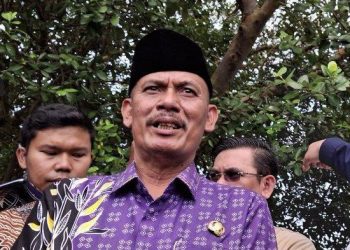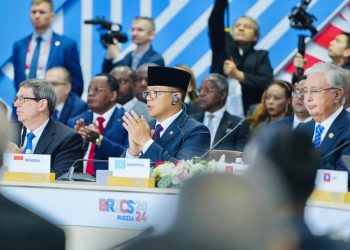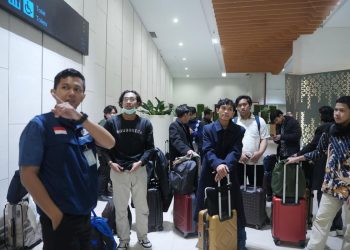Jakarta, Indonesia Sentinel — President Prabowo Subianto has announced an ambitious national goal that Indonesia could achieve energy self-sufficiency within the next five to six years.
The statement came during his speech at the groundbreaking ceremony for the Integrated Electric Battery Industry Ecosystem in Karawang, West Java, on Sunday (June 29, 2025).
“I’ve been told by experts that our nation truly has the potential to become energy self-sufficient, and according to my calculations, it won’t take long—five years, six at most,” said Prabowo.
He emphasized that one of the key pathways to achieving this Energy Self-Sufficiency goal lies in maximizing the use of electricity, particularly from solar power. “The key to solar-powered electricity is battery technology,” Prabowo noted, adding that Indonesia’s growing domestic battery industry will be central to this transformation.
The newly launched battery cell project in Karawang is expected to produce 15 gigawatt hours (GWh) annually. However, the president stressed that Indonesia will need to generate at least 100 gigawatts (GW) of capacity to reach full energy independence. “That means we’ll likely need to multiply this project several times over. And I believe we are capable of doing that,” he added.
Read Also:
Indonesia and Malaysia Agree to Joint Economic Development of Disputed Ambalat Block
According to Prabowo, achieving energy independence could save the country up to $58 billion annually (roughly Rp939.6 trillion) by reducing reliance on fuel and electricity subsidies and slashing fuel import costs.
He described the Karawang Electric Battery Industry Ecosystem as a strategically vital project. The initiative, backed by a consortium of state-owned miner ANTAM, Indonesia Battery Corporation (IBC), and Chinese battery firm CBL, is supported by a $5.9 billion investment.
Minister of Energy and Mineral Resources, Bahlil Lahadalia, added that the battery plant currently under construction will have a production capacity of 15 GWh, enough to power between 250,000 and 300,000 electric vehicles.
Bahlil also revealed that the industrial zone will not only focus on EV battery manufacturing but will be expanded to include Battery Energy Storage Systems (BESS), designed to store energy from renewable sources such as solar panels. However, specific capacity figures for the BESS component have not yet been disclosed.
(Raidi/Agung)


























